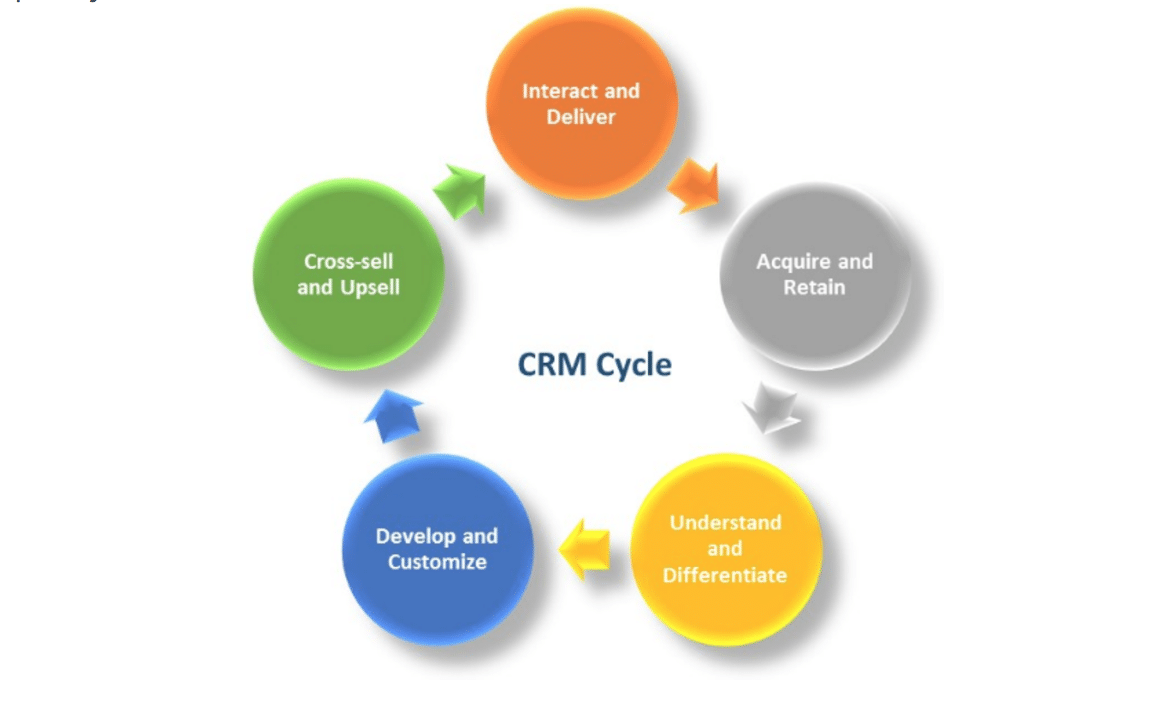Customer Relationship Management (CRM) systems have transformed the way businesses interact with their customers, driving significant increases in revenue and customer loyalty. By centralizing customer data and streamlining communication, CRM tools enable companies to offer more personalized and efficient services.
This not only enhances the customer experience but also fosters long-term relationships that are crucial for business growth. In this article, we will explore how CRM systems can be leveraged to boost revenue and build lasting customer loyalty, providing real-world examples and practical strategies for implementation.
How CRM Increases Revenue and Customer Loyalty
A Customer Relationship Management (CRM) system is a powerful tool that can significantly boost a company’s revenue and enhance customer loyalty.
By centralizing customer data, automating marketing and sales processes, and providing valuable insights, CRM helps businesses better understand and engage with their customers, leading to increased sales and stronger customer relationships. This article explores the key ways CRM contributes to these outcomes.
Centralized Customer Data for Enhanced Personalization
One of the primary benefits of using CRM is the ability to centralize customer data. This includes contact information, purchase history, interactions, and preferences. With all this information in one place, businesses can create more personalized experiences for their customers.
Personalization leads to higher customer satisfaction, which in turn increases the likelihood of repeat business and customer loyalty. For example, a CRM system can automatically send tailored product recommendations based on a customer’s past purchases, making the shopping experience more enjoyable and relevant.
Automated Marketing and Sales Processes for Efficiency
CRM systems automate key marketing and sales processes, such as lead generation, lead nurturing, and sales tracking. This automation not only saves time but also ensures that no potential customer is overlooked.
Automated email campaigns, for instance, can be set up to send follow-up messages to leads at the right times, keeping the brand top of mind without the need for manual intervention. This efficiency allows sales teams to focus on high-value activities, leading to higher conversion rates and increased revenue.
Valuable Insights for Strategic Decision-Making
CRM systems provide comprehensive analytics and reporting features that offer valuable insights into customer behavior and business performance. These insights can help businesses identify trends, optimize marketing strategies, and make data-driven decisions.
For example, a CRM can reveal which marketing channels are most effective in acquiring new customers or which products are driving the most revenue. Armed with this information, businesses can allocate resources more effectively and adjust their strategies to maximize revenue growth and customer retention.
| Benefit | Description |
|---|---|
| Centralized Customer Data | Collects and organizes all customer information in one place for easy access and analysis. |
| Automated Marketing and Sales Processes | streamlines and automates key business processes to improve efficiency and effectiveness. |
| Valuable Insights | Provides detailed analytics and reports to inform strategic decision-making. |
How does CRM increase revenue?

CRM (Customer Relationship Management) systems are designed to improve the efficiency and effectiveness of business processes by streamlining customer interactions. By enhancing customer engagement and satisfaction, CRM can significantly increase revenue for businesses. Here’s how:
Enhanced Customer Retention
One of the primary ways CRM increases revenue is by improving customer retention. CRM systems provide tools to track customer interactions, preferences, and purchase history, allowing businesses to offer personalized and relevant experiences.
This level of personalization fosters stronger customer relationships, leading to increased loyalty and repeat business.
- Customer data collection: CRM systems capture detailed data on customer interactions, preferences, and purchase history.
- Personalized communication: Businesses can use this data to send targeted marketing messages and offers, increasing the likelihood of customer engagement.
- Customer satisfaction: Delivering a consistent and personalized experience enhances customer satisfaction, which is crucial for long-term retention.
Improved Sales Efficiency
CRM systems help sales teams become more efficient and effective. By automating routine tasks and providing real-time insights, CRM enables sales teams to focus on high-value activities that drive revenue.
- Lead management: CRM systems help track and manage leads, ensuring that no potential customer falls through the cracks.
- Automation of sales processes: Automating tasks such as follow-up emails and appointment scheduling allows sales teams to focus on closing deals.
- Data-driven decision making: Real-time analytics and reports provide insights that help sales teams identify trends, optimize strategies, and close more deals.
Increased Cross-selling and Up-selling Opportunities CRM systems provide valuable insights into customer behavior and preferences, enabling businesses to identify and capitalize on cross-selling and up-selling opportunities. By understanding what customers need and want, businesses can offer additional products or services that complement their existing purchases.
- Customer insights: CRM systems provide detailed customer profiles, including purchase history and preferences, which help identify additional needs.
- Targeted recommendations: Based on these insights, businesses can make personalized recommendations for complementary products or services.
- Enhanced customer value: Cross-selling and up-selling not only increase revenue but also enhance customer value by providing a more complete and satisfying experience.
How does CRM enhance customer loyalty and retention?
Customer Relationship Management (CRM) systems play a pivotal role in enhancing customer loyalty and retention by providing businesses with the tools and insights needed to build strong, lasting relationships with their customers.
CRM systems centralize customer data, allowing businesses to understand customer behavior, preferences, and interactions in a comprehensive manner. By leveraging this data, companies can personalize their interactions, anticipate customer needs, and deliver superior service, which in turn fosters trust and loyalty.
Additionally, CRM systems facilitate consistent communication and follow-up, ensuring that customers feel valued and heard. This personalized and consistent approach not only helps in retaining existing customers but also in creating brand advocates who can drive new business through referrals and positive word-of-mouth.
Personalization and Tailored Experiences
CRM systems enable businesses to gather and analyze vast amounts of customer data, including purchase history, browsing behavior, and communication preferences. This data allows companies to create highly personalized experiences for their customers.
For instance, a CRM can help in sending targeted marketing messages, offering personalized product recommendations, and providing customized service solutions. By addressing each customer’s unique needs and preferences, businesses can build stronger, more meaningful relationships.
This level of personalization not only enhances customer satisfaction but also increases the likelihood of repeat purchases and long-term loyalty.
- Targeted marketing campaigns based on customer behavior and preferences
- Personalized product recommendations and offers
- Customized service and support solutions
Proactive Customer Service and Support
One of the key advantages of CRM systems is their ability to support proactive customer service. By tracking customer interactions and identifying potential issues, businesses can address problems before they escalate.
For example, a CRM can alert customer service teams when a customer has not received an order or when a service issue is likely to arise. This proactive approach helps in resolving issues quickly and efficiently, thereby improving customer satisfaction and reducing churn.
Furthermore, CRM systems can automate routine tasks, such as follow-up emails and reminders, ensuring that customers receive consistent and timely support.
- Automated alerts for potential issues and customer concerns
- Quick and efficient resolution of customer problems
- Consistent and timely follow-up communication
Customer Insights and Analytics
CRM systems provide businesses with powerful analytics tools that offer deep insights into customer behavior and preferences. These insights can be used to identify trends, predict future customer actions, and optimize business strategies.
For instance, analytics can help in understanding which marketing channels are most effective, what products are most popular, and which customer segments are most profitable. By leveraging these insights, businesses can make data-driven decisions that enhance customer loyalty and retention.
Additionally, CRM analytics can help in segmenting customers and tailoring strategies to meet the specific needs of different customer groups, thereby improving overall customer satisfaction.
- Identifying key customer trends and preferences
- Predicting future customer behavior and needs
- Optimizing marketing and service strategies based on data insights
How does customer loyalty increase revenue?
Customer loyalty can significantly increase revenue through various mechanisms, ranging from repeat purchases to positive word-of-mouth marketing. By building strong relationships with customers, businesses can ensure sustained and growing revenue streams.
Here’s how customer loyalty impacts revenue:
Repeat Purchases and Higher Lifetime Value
Loyal customers are more likely to make repeat purchases, which directly contributes to higher revenue. These customers have a higher lifetime value compared to one-time buyers because they consistently return to the brand, increasing the total amount spent over time. For example:
- They may buy more frequently, leading to more frequent revenue streams.
- They might purchase higher-value products or services, boosting average transaction sizes.
- Loyal customers often become less price-sensitive, allowing businesses to maintain or even increase prices.
Cost Efficiency in Customer Acquisition and Retention
Acquiring new customers can be significantly more expensive than retaining existing ones. Loyal customers reduce the need for extensive marketing and acquisition efforts, leading to cost savings that can be reinvested into the business or passed on to customers as value-added services or discounts. For example:
- Reduced marketing and advertising costs as loyal customers act as brand advocates.
- Lower customer service costs due to fewer complaints and issues from satisfied customers.
- Increased referral rates, which are often a less costly and more effective way to acquire new customers.
Positive Word-of-Mouth and Brand Advocacy
Loyal customers are more likely to recommend a brand to their friends, family, and colleagues, generating positive word-of-mouth. This organic marketing is highly effective and can lead to a larger customer base without the need for significant advertising spend. For example:
- Word-of-mouth recommendations are trusted more than traditional advertising, leading to higher conversion rates.
- Loyal customers often engage with the brand on social media, creating user-generated content that can attract new customers.
- Brand advocates can help manage online reputation by leaving positive reviews and testimonials, which can influence potential customers.
How does CRM affect customer loyalty?
Customer Relationship Management (CRM) software plays a crucial role in enhancing customer loyalty by systematically managing interactions and relationships with customers.
By providing a centralized platform for storing customer data, CRM systems enable businesses to deliver personalized experiences, improve communication, and offer more relevant products and services. This, in turn, fosters trust and strengthens the bond between the company and its customers.
CRM tools also facilitate the analysis of customer behavior and preferences, allowing businesses to make informed decisions that can further enhance customer satisfaction and loyalty.
Personalization and Tailored Experiences
One of the primary ways CRM affects customer loyalty is through personalization. CRM systems collect and store a wealth of data on customer interactions, preferences, and purchase history. This data is then used to create highly personalized experiences. For example:
- Businesses can send targeted marketing campaigns that are more likely to resonate with specific customer segments.
- Customer service representatives can quickly access a customer’s history to provide more informed and empathetic support.
- Product recommendations can be tailored to individual tastes, increasing the likelihood of repeat purchases.
Enhanced Communication and Engagement
Effective communication is another key factor in building customer loyalty, and CRM systems excel in this area. By centralizing customer data, CRM tools ensure that all communication is consistent and relevant. This leads to:
- More timely and relevant email newsletters and updates.
- Proactive customer service that addresses issues before they become problems.
- Regular follow-ups and personalized check-ins that keep customers engaged and valued.
Data-Driven Decision Making
CRM systems provide valuable insights through data analysis, enabling businesses to make more informed decisions. These insights can significantly impact customer loyalty by helping companies:
- Identify trends and patterns in customer behavior to anticipate needs and preferences.
- Optimize marketing strategies based on what has been most effective in the past.
- Refine product offerings and services to better meet customer expectations.
Frequently Asked Questions
How does CRM improve customer satisfaction and loyalty?
CRM systems enhance customer satisfaction and loyalty by providing personalized experiences through detailed customer data. By tracking interactions, preferences, and purchase history, businesses can tailor their communications and offers, ensuring customers feel valued.
This personalized approach not only meets customer needs but also builds strong, lasting relationships, leading to increased loyalty and repeat business.
What metrics should businesses track to measure CRM’s impact on revenue?
To measure CRM’s impact on revenue, businesses should track key metrics such as customer acquisition cost, customer lifetime value, conversion rates, and revenue growth.
These indicators help identify the effectiveness of CRM strategies in attracting new customers and retaining existing ones. Regular analysis of these metrics ensures that CRM efforts are aligned with business goals, driving sustainable revenue growth.
How can CRM systems help in identifying upselling and cross-selling opportunities?
CRM systems provide valuable insights into customer behavior and preferences, enabling businesses to identify upselling and cross-selling opportunities.
By analyzing purchase history and interactions, CRM tools can recommend additional products or services that complement existing purchases. This targeted approach not only increases average transaction value but also enhances customer satisfaction, as it shows that the business understands and caters to their needs.
What role does CRM play in reducing customer churn?
CRM plays a crucial role in reducing customer churn by providing proactive and personalized customer service. By monitoring customer interactions and feedback, businesses can address issues and concerns in real-time, preventing dissatisfaction that could lead to churn.
CRM systems also help in identifying at-risk customers, allowing for targeted retention efforts. This proactive approach ensures that customers feel valued and supported, strengthening their loyalty and reducing the likelihood of defection.


